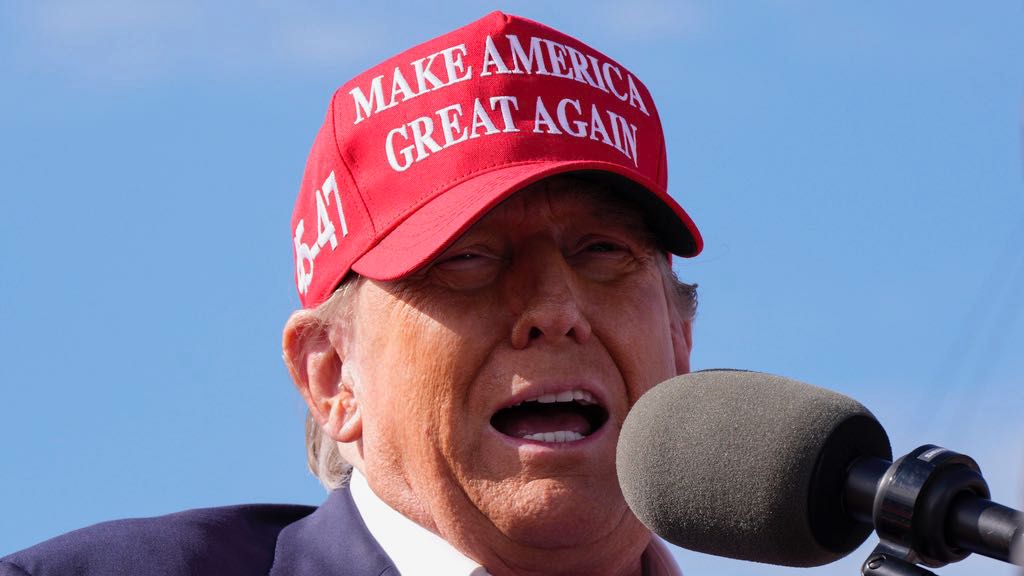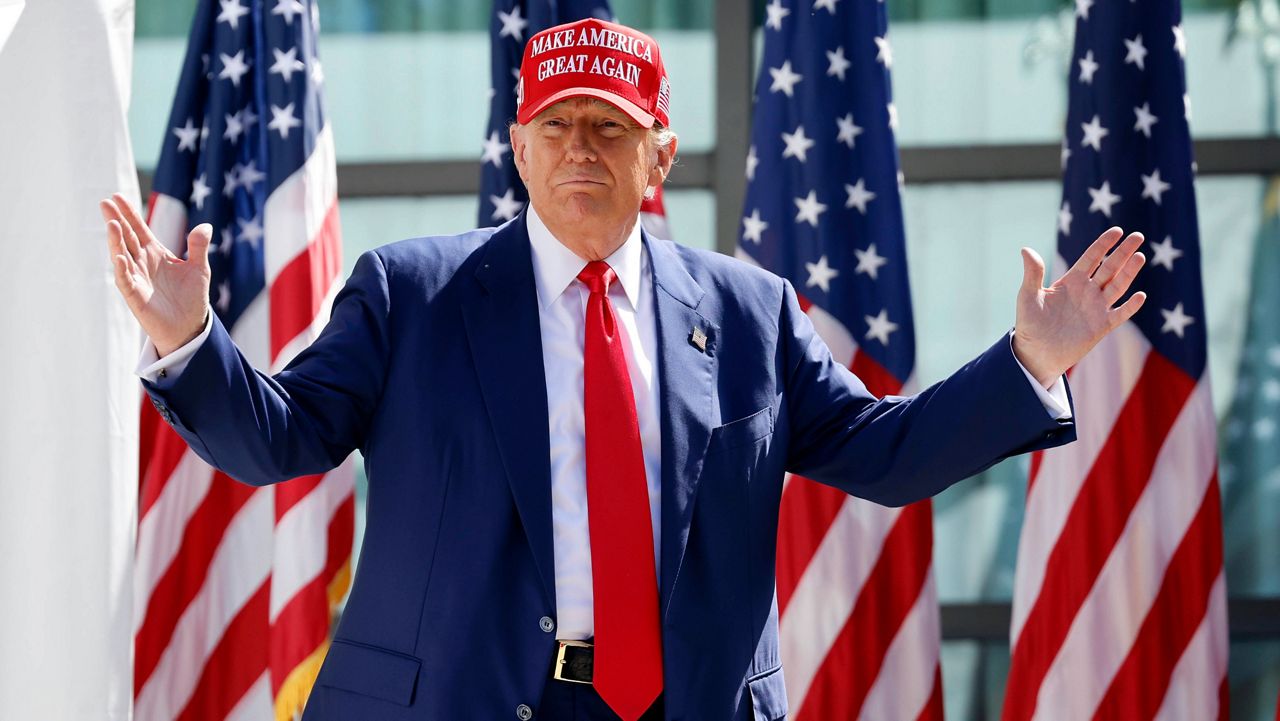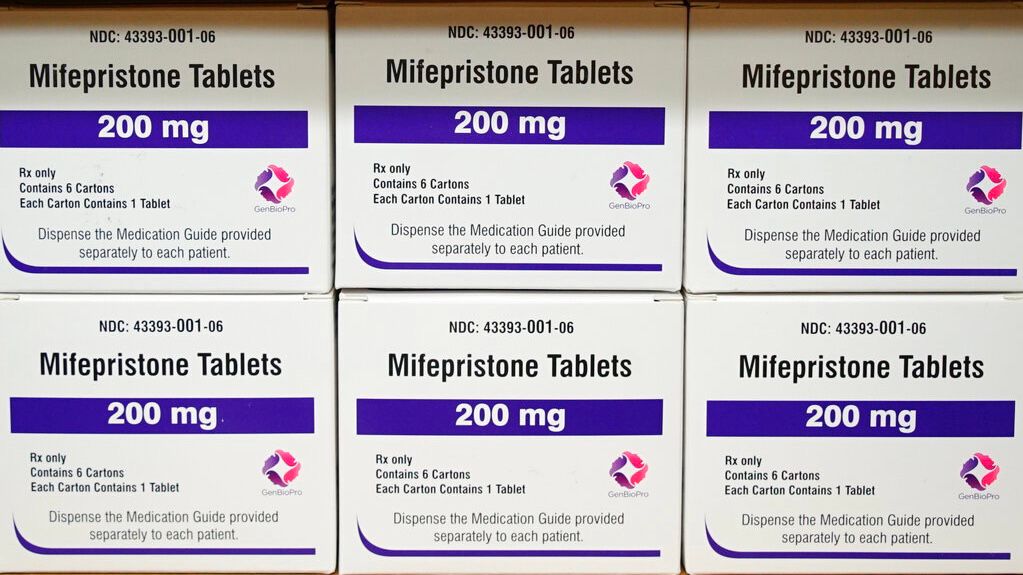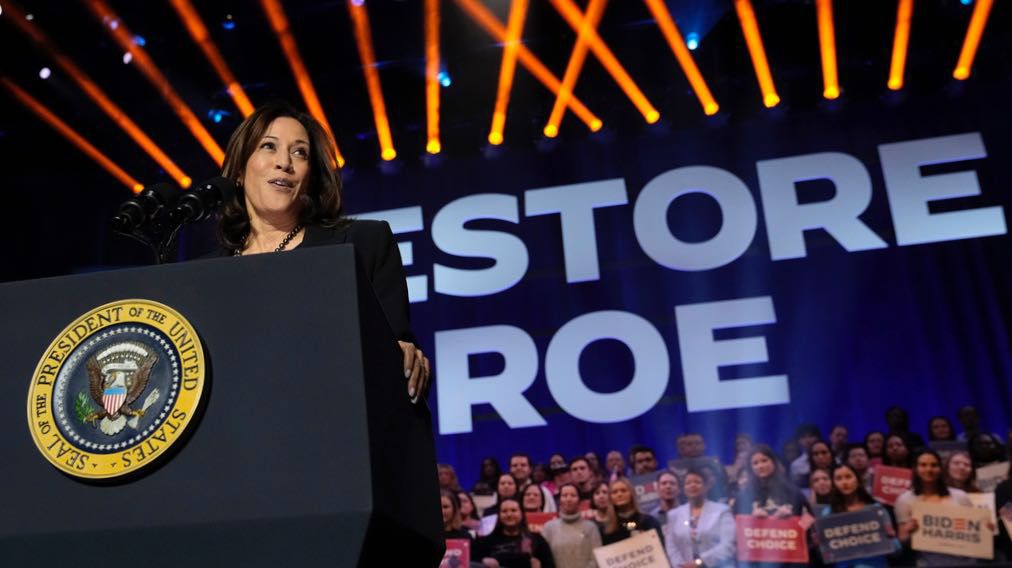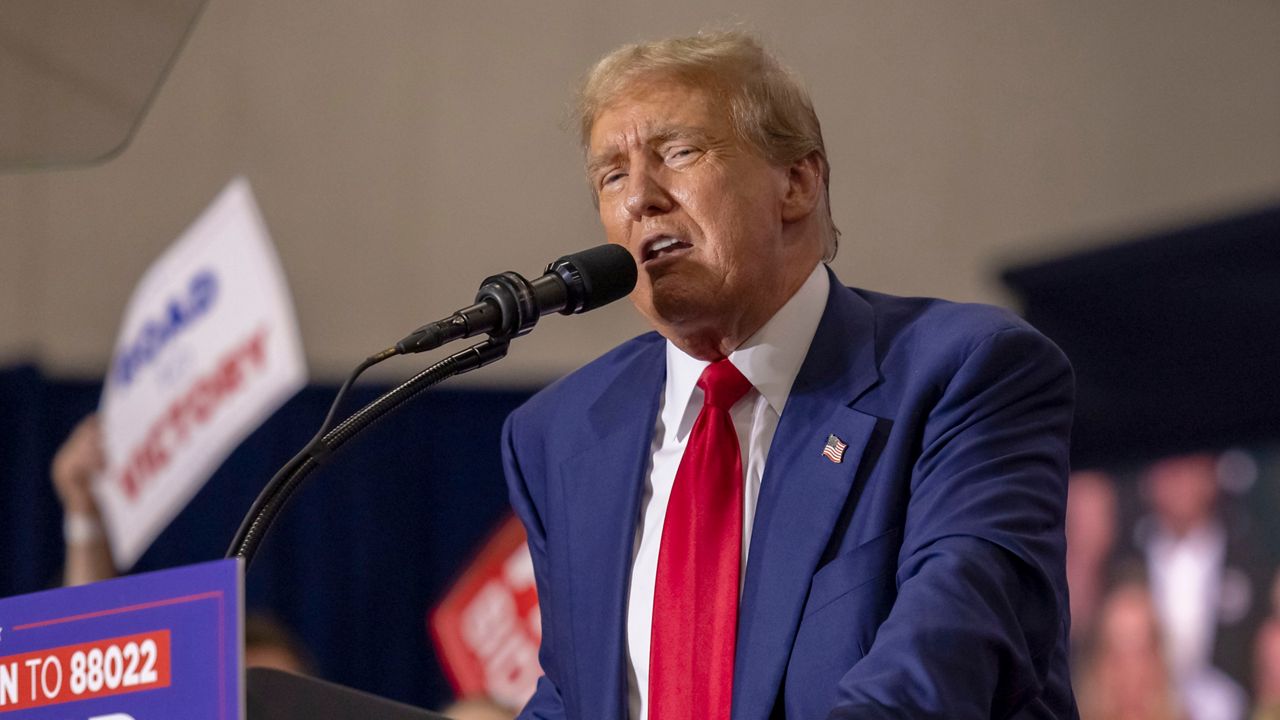Former President Donald Trump, the 2024 GOP presumptive presidential nominee, said in an interview with TIME magazine he would defer to individual states if they want to enforce abortion laws by monitoring women’s pregnancies and prosecuting them if they get abortions.
What You Need To Know
- Former President Donald Trump told Time magazine he would defer to individual states if they want to enforce abortion laws by monitoring women’s pregnancies and prosecuting them if they get abortions
- When asked if states “should monitor women’s pregnancies so they can know if they’ve gotten an abortion after the ban,” Trump said. “I think they might do that”
- He wouldn’t say if he believed the federal government should ban the shipping of abortion drugs across state lines
- On a House GOP proposal to grant full legal rights to embryos, Trump said “I’m leaving everything up to the states. The states are going to be different. Some will say yes. Some will say no”
“It’s irrelevant whether I’m comfortable or not. It's totally irrelevant, because the states are going to make those decisions,” Trump said when asked if he would be comfortable with states criminally charging women for getting abortions. “And by the way, Texas is going to be different than Ohio. And Ohio is going to be different than Michigan.”
Trump has proudly taken credit for appointing three of the six judges who authored the Supreme Court’s Dobbs decision, which undid the 50-year precedent of Roe v. Wade and allowed states to implement abortion bans, but has tempered his enthusiasm for the most severe state laws and proposals, arguing they can be political liabilities as he seeks to return to the White House.
But in the TIME interview published Tuesday and conducted over the course of two conversations this month, Trump said his personal level of comfort did not matter and he would leave those decisions up to the states if he were elected president again.
On a proposal by the Republican Study Committee — which includes around 80% of House Republican lawmakers, including Speaker Mike Jorhnson, R-La. — to grant full legal rights to embryos, Trump said “I’m leaving everything up to the states. The states are going to be different. Some will say yes. Some will say no.” He did not say he would veto federal legislation if it reached his desk, arguing again it would be left up to state governments.
When asked if states “should monitor women’s pregnancies so they can know if they’ve gotten an abortion after the ban,” Trump said. “I think they might do that” before launching into an aside where he falsely claimed “every legal scholar, Democrat, Republican and other” wanted the question of abortion’s legality sent back to statehouses and state courts.
Trump described his adopted home state of Florida’s six-week ban, which is set to take effect on Wednesday, as “too severe,” but wouldn’t say how he would vote on a state referendum in November that would undo the ban by codifying abortion rights in the state constitution. He also wouldn’t say if he believed the federal government should ban the shipping of abortion drugs across state lines, telling TIME he would have an announcement on his views within two weeks (and then delaying it another week or two as of Saturday). And he refused to entertain a hypothetical national abortion ban, pushed by many Washington Republicans, by arguing his party would “never” have the 60 votes in the Senate required to pass that kind of legislation.
“It's all about the states, it's about state rights. States’ rights. States are going to make their own determination,” Trump insisted. “And you know what? That’s taken tremendous pressure off everybody… it was ill-defined. And to be honest, the Republicans, a lot of Republicans, didn't know how to talk about the issue. That issue never affected me.”
Despite his unwillingness to publicly offer his own distinct opinions on a national abortion ban or the prosecutions of women who have abortions, Democrats were not willing to let him off the hook on Tuesday morning.
“All of this cruelty and chaos can be traced back to Donald Trump,” Florida Democratic Party chair Nikki Fried said on a pre-scheduled Democratic National Committee press call. “He repeatedly refused to rule out a national abortion, ban endorsed the prosecution of women and doctors and left the door open to legislation that could rip away access to” in-vitro fertilization.”
Vice President Kamala Harris will be in Jacksonville, Fla., on Wednesday for a rally focused on the fight for abortion rights. The Biden campaign said she will be there to “continue to make the case that Donald Trump did this.”
Biden, Harris and Democrats across the country are campaigning against abortion restrictions in the hopes of repeating their electoral successes since Roe v. Wade was overturned in June 2022. A stronger-than-expected showing congressional Democrats that fall and in federal and local special elections since, as well as a successful series of statewide referendums protecting abortion rights in states like Ohio and Kansas, has encouraged them that the issue can be a winner for them this year.
Biden, a devout Catholic who has long held personal objections to abortion, has said he would work to restore Roe v. Wade as the law of the land.
“Donald Trump’s latest comments leave little doubt: if elected he’ll sign a national abortion ban, allow women who have an abortion to be prosecuted and punished, allow the government to invade women’s privacy to monitor their pregnancies, and put IVF and contraception in jeopardy nationwide,” Biden’s campaign manager Julie Chavez Rodriguez said in a statement. “The horrific and devastating stories in states like Florida, Texas and Arizona with extreme abortion bans unleashed by Trump overturning Roe are just the beginning if he wins.”
“Simply put: November’s election will determine whether women in the United States have reproductive freedom, or whether Trump’s new government will continue its assault to control women’s health care decisions,” she added.
Polling suggests most Americans agree with Biden and Democrats on the issues, even as the president runs about even with Trump in national polls and lags behind him in key swing states.
Two-thirds of Americans, including 67% of independents, would support a federal law codifying the right to an abortion, according to a February poll from the health policy nonprofit KFF. Nearly 60% of respondents said they oppose a 16-week abortion ban. And 41% of women said they trusted Biden more to “move abortion policy in the right direction,” compared to 25% for Trump and 22% who said neither.
Last month, Fox News’ polling outfit found a record high number of voters — 59% — believe abortion should be legal in all or most cases. Compared to April 2022, the poll found double-digit increases in support for the legal right to an abortion among voters 65 and older, conservatives, Republicans and white evangelical Christians. Majorities opposed six-week and 15-week abortion bans.




